|
IRISH MUSIC... © www.irisheyes.fr
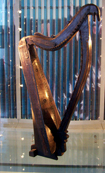 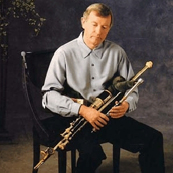 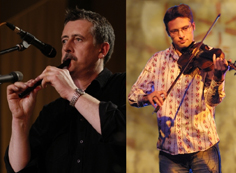
CRAN.
par Mike Walsh - © www.irisheyes.fr
Lilting is a great skill as the knowledge of the aesthetics of Irish music is carried in the voice. A good lilter conveys an awful lot of information about the tune, sometimes more than a musical instrument.”
Irish music group Cran are a talented ensemble of multi-instrumental traditional virtuosos “for people who like songs”, as Belfast-born flute player / vocalist Desi Wilkinson explains. “We all love singing, and Drogheda-man Sean Corcoran in particular has researched a lot of old songs in English and Gaelic; he’s the strength there. He has a lot of his own archives through extensive firsthand collecting from Louth and Fermanagh. I’ve also done a lot of field work up in Sligo and Co. Leitrim, for flute-playing particularly back in the 1970s when a lot of the players were still around, I loved the style they had, it was like a way of talking and it appealed to me a lot.”
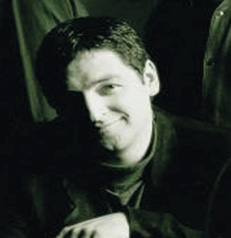 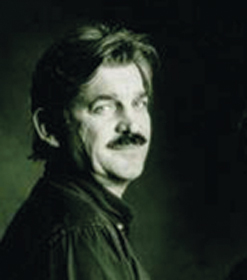 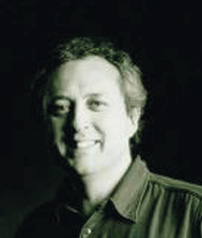
Formed in Belfast in 1995 the present Cran line-up is completed by uilleann piper, flutist and vocalist Ronan Browne, a man who is “big in Japan”. “Ronan does a lot of work composing soundtracks for Japanese video games, all from his home studio in Spidal, Co. Galway!” The mind boggles.
With their stunning vocal anthems and immaculate playing Cran are one of the most exciting groups in Irish music today; their “Black, Black, Black” album (1998) a particular favourite.
Desi Wilkinson is a musician well known in Breton circles, having lived in France for several years. “I love the whole Breton language and culture, I had a great time when I was there and I still play a lot of Breton music on the Breton clarinet. I’m a big pal of Jean Michel Veillon and we recently toured in Brittany together.”
Our conversation catches Desi having just moved to Newcastle where he has begun lecturing on a newly established Irish folk music and traditional music degree course, started by Alistair Anderson of Folkworks. “I’m the new lecturer representing the Irish connection on that course. Other lecturers include the Northumbrian piper Kathryn Tickell and Catriona MacDonald from the Shetland Islands, so I’m in very good company. There’s a hinterland of unbroken tradition in music here with traditional Jarrow songs talking of going over the water to England! They must mean sailing across the Tyne.”
Desi is also an aficionado of the Turkish lute. “At Queens, where I studied a musicology degree, I was fortunate to have a very good teacher, Martin Stokes, who was into Turkish music; to understand that music I learned to play it. I have a Turkish lute and I still play it a bit.”
No surprise then to find that Cran, once described as a group who play with “devil-may-care flamboyance” are deliciously open to new and old influences in their music. “While it’s true that we like to take the tunes carefully and value them, we’re serious about what we do but we don’t carry the cumbersome burden of heritage and tradition around with us.”
Musical influences for the Cran lads is broad: “All the greats of Irish music, starting with Seamus Ennis and Willie Clancy and particularly the wonderful singers like Charlie O’Neill, Joe Holmes; some of the lesser known stars of Irish song. We draw from both the Gaelic and English language singing tradition in Ireland.”
Presently Cran have a new album in the pipeline, their last being “Music from the Edge of the World” (2002), “an album which best represents what we reproduce in our live performance.” They are also digitally re mastering their inaugural album “The Crooked Stairs” which will be re-released before Christmas.
With many wonderful memories already of playing France, including at the Quartz in Brest, La Villette and Le Cirque D’Hiver in Paris, Cran recently played at Le Mée sur Seine, a concert of astonishing diversity and vocal depth.
© Copyright Irish Eyes
TOP
Vous pouvez nous contacter en envoyant un mail à l’adresse suivante : contact
© Copyright Irish Eyes - Photos: © The Irish Club
|